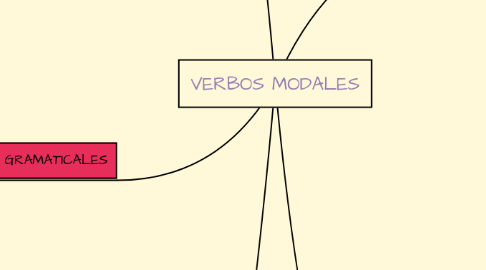
1. EJEMPLOS
1.1. CAN
1.1.1. I can dance.
1.1.2. I can not dance.
1.1.3. Can i can dance?
1.2. SHOULD
1.2.1. We should have a picnic.
1.2.2. We should not have a picnic.
1.2.3. Should we have a picnic?
1.3. MUST
1.3.1. I must wake un earlier.
1.3.2. i must not wakw un earlier.
1.3.3. Must i wake un earlier?
1.4. COULD
1.4.1. I could go to france, but my bus arrive late.
1.4.2. I could not go to france, but my bus arrive late.
1.4.3. Could i go to france, but my bus arrive late.
1.5. WOULD
1.5.1. She would tak cake.
1.5.2. She would not tak cake.
1.5.3. Would she return later?
1.6. MIGHT
1.6.1. She might return later.
1.6.2. She might not return later.
1.6.3. Might she return later?
1.7. HAVE TO
1.7.1. They have to help yo with yuor work.
1.7.2. They have not to help tuo with your work.
1.7.3. Have to they help you with you work?
1.8. BE ABLE TO
1.8.1. You are able to come with us.
1.8.2. You arent not able will come with us.
1.8.3. Are able to you will come with us?
1.9. OUGHT TO
1.9.1. You ought to eat more vegetables.
1.9.2. You ought not to eat more vegetables.
1.9.3. Ought to you eat more vegetables?
2. USOS
2.1. CAN
2.1.1. Expresa la habilidad de realizar alguna acción.
2.2. MUST
2.2.1. Indica una obligación, prohibición o necesidad.
2.2.2. En algunos casos puede indicar probabilidad.
2.3. MIGHT
2.3.1. Expresa posibilidad remota.
2.4. SHOULD
2.4.1. Expresa obligación moral y en ocasiones consejo
2.5. OUGTH TO
2.5.1. Indica una obligación moral (débil) es decir; algo que deberíamos hacer.
2.6. COULD
2.6.1. Expresa el podría.
2.6.2. Es el pasado del verbo can
2.7. WOULD
2.7.1. Su principal característica es que tiene la terminación "ria"
2.8. HAVE TO
2.8.1. ES una expresión que determina tener que.
2.9. BE ABLE TO
2.9.1. Expresa la habilidad de ser capaz de, poder.
3. FORMAS GRAMATICALES
3.1. FORMA AFIRMATIVA
3.1.1. Estructura
3.1.1.1. Sujeto + Verbo modal + Verbo principal + complemento.
3.2. FORMA NEGATIVA
3.2.1. Estructura
3.2.1.1. Sujeto + Verbo modal + Negación (NOT) + verbo principal (infinitivo) + complemento.
3.3. FORMA INTERROGATIVA
3.3.1. Estructura
3.3.1.1. Verbo modal + Sujeto + Verbo principal + Complemento + ?
3.4. FORMA NEGTIVA
3.4.1. Have to
3.4.1.1. Sujeto + do/does +not + verbo principal + complemento.
3.4.2. Be able to
3.4.2.1. Sujeto + am/is/are + not +verbo principal +complemento
3.4.3. Ought to
3.4.3.1. Sujeto + verbo modal +not +verbo principal + complemento.
3.5. FORMA INTERROGATIVA
3.5.1. Have to
3.5.1.1. Do/Does+ sujeto +verbo principal+complemento.
3.5.2. Be able to
3.5.2.1. am/is/are+verbo modal +sujeto+verbo principal+ sujeto.
3.5.3. Ought to
3.5.3.1. verbo principal +sujeto+verbo principal+complemento.
4. DEFINICION
4.1. Son verbos auxiliares que no pueden funcionar como un verbo principal, a diferencia de los verbos auxiliares "be", "do" y "have" que si pueden funcionar como un verbo principal.
4.2. CAN
4.2.1. Poder
4.3. SHOULD
4.3.1. Deberia
4.4. MUST
4.4.1. Deber (obligación)
4.5. MIGHT
4.5.1. Indica (probabilidad)
4.6. COULD
4.6.1. Podía(pasado de can)
4.7. WOULD
4.7.1. Expresa la terminación ria.
4.8. MIGHT
4.8.1. probabilida
4.9. HAVE TO
4.9.1. Tener
4.10. OUGHT TO
4.10.1. Deberia
